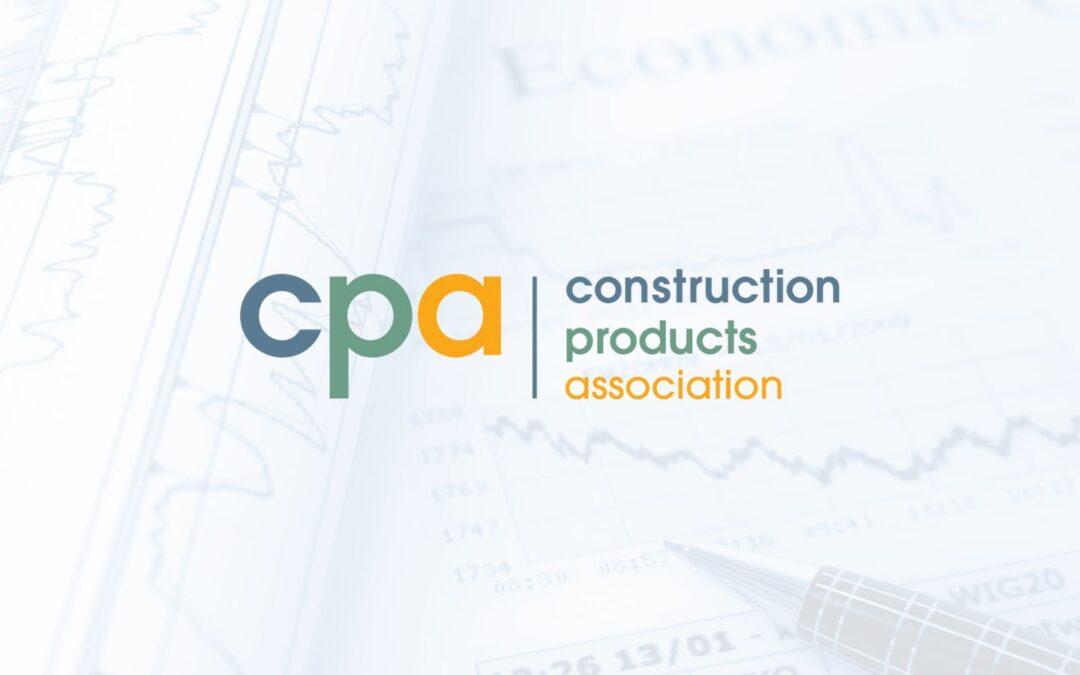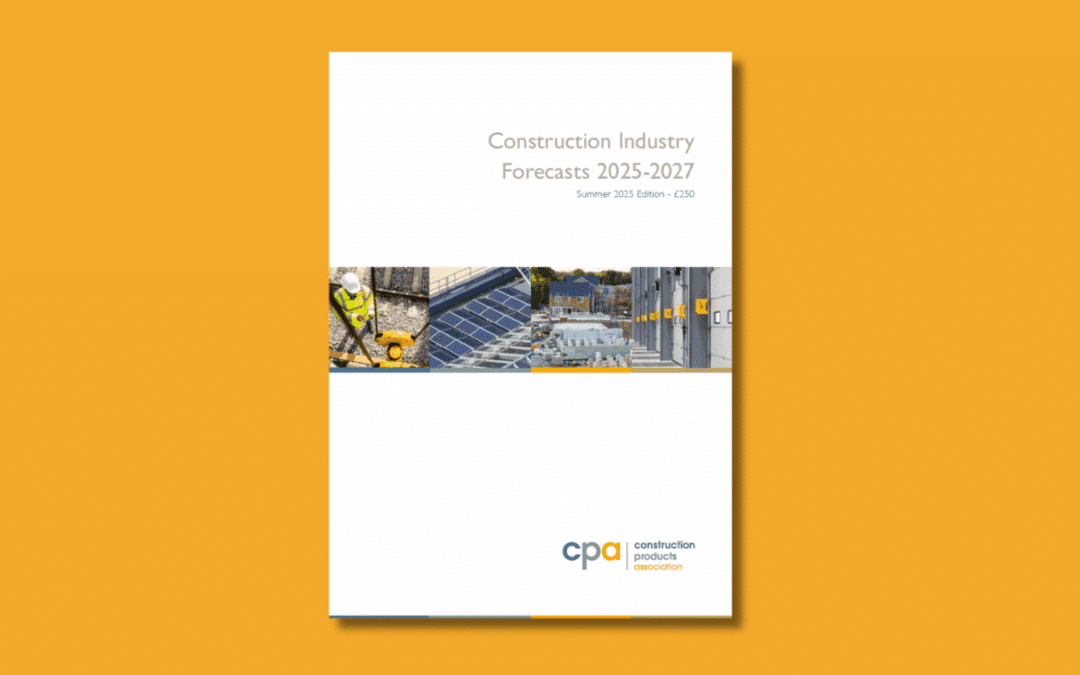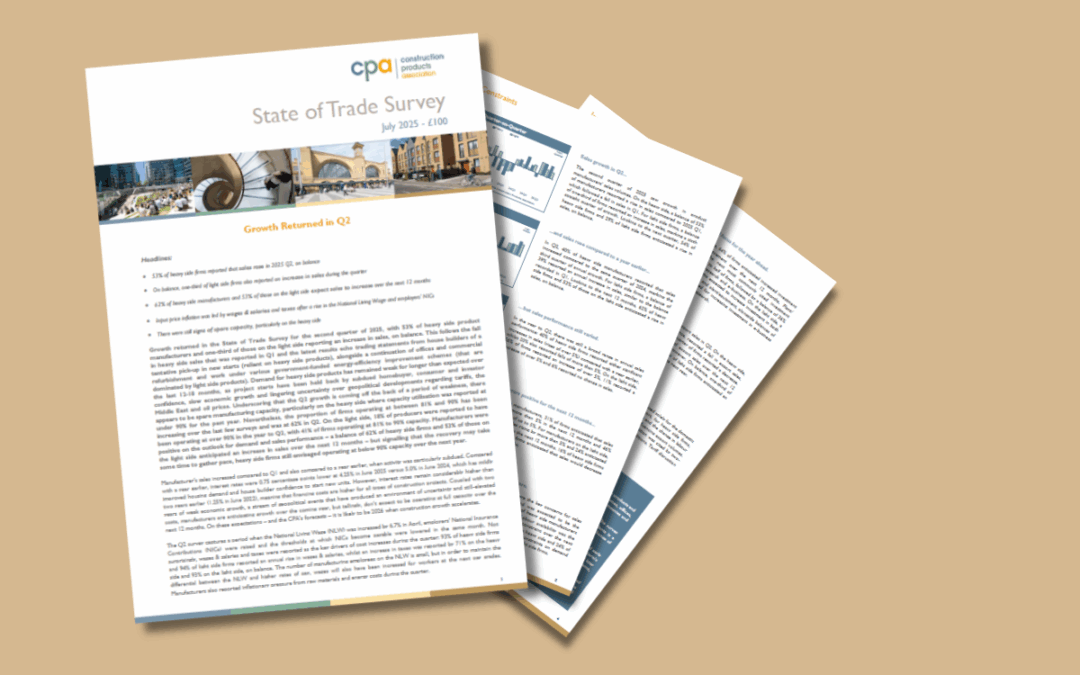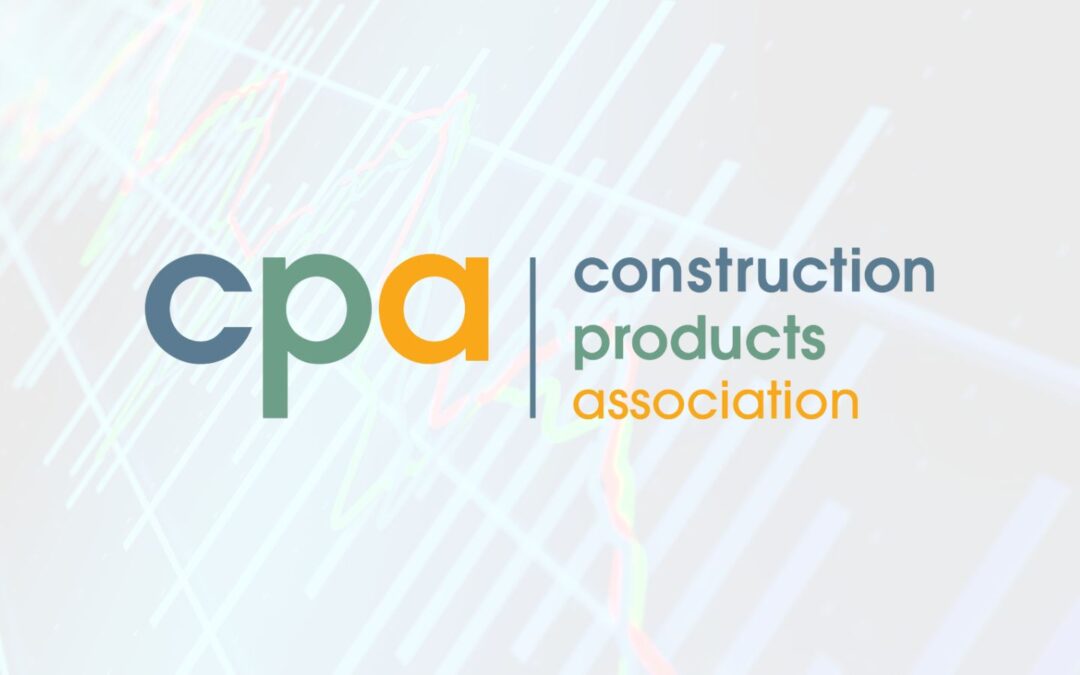The Construction Products Association’s Summer Forecasts, published today, show that the key drivers of cautious growth in UK construction remain similar to three months ago but the economic risks and uncertainties have risen considerably. Total construction output is forecast to rise by 1.9% in 2025 and 3.7% in 2026, matching projections from Spring.
The growth in construction activity in 2025 and 2026 is forecast to be driven by the three largest sectors of construction: private housing new build, private housing repair, maintenance and improvement (rm&i) and infrastructure. Nevertheless, these sectors remain vulnerable to delays in starting new projects in the near-term, homeowner and consumer confidence to spend, and risks around the government increasingly looking as though it will need to raise taxes once again, potentially cut back on its capital expenditure plans, or both.
Private housing output is forecast to rise by 4.0% in 2025 and 7.0% in 2026. Fortunes for firms in house building will depend heavily on which part of the sector they are operating in. Major house builders continue to see a gradual recovery in completions, from a low base. Smaller house builders have seen an improvement in demand, but site viability remains challenging, given the numerous costs that the government continues to add to house builders. Build-to-Rent and high-rise continue to be affected by 6-9 month delays at the Building Safety Regulator, which are not expected to be resolved during the forecast period. Whilst government’s focus on supply side measures such as the National Planning Policy Framework, and the Planning and Infrastructure Bill may benefit towards the end of the forecast period and beyond, the demand side will be the key driver of activity in the near-term, balancing further interest rate cuts and improving confidence with continuing constraints around affordability.
In private housing rm&i, activity continues to be supported by government-subsidised energy-efficiency programmes, predominantly for heat pumps and solar photovoltaics, as well as a stream of fire safety remediation work. Outside of this, general home improvement activity remains subdued because although many homeowners currently have spare funds available for general home improvements, they are choosing to save rather than spend due to the scarring effect of the inflation spikes in 2022 and 2023 and current economic uncertainty. The key to growth in the sector overall will be when these homeowners with finance feel confident enough to spend on home improvement projects. This is still expected to be in late 2025 but it may be pushed back into 2026, especially if there are tax rises in the Autumn. Overall, private housing rm&i output is expected to rise by 2.0% in 2025, with any growth at the backend of the year, followed by 3.0% growth in 2026.
Infrastructure activity continues to remain strong on major projects such as Hinkley Point C and HS2, with water & sewerage as well as energy generation and distribution also set to become key drivers of growth next year. Large announcements of capital expenditure, the government’s recent ten-year Infrastructure Strategy and the Infrastructure Pipeline also show potential for the long-term. However, constant pauses, delays and cancellations to road and rail projects, the most recent of which were at the start of the month, as well as questions over the level of funding in the next National Highways settlement highlight major risks to infrastructure delivery. Overall, infrastructure output is expected to rise by 1.9% in 2025 and 4.4% in 2026.
Commenting on the Spring Forecasts, CPA Head of Construction Research, Rebecca Larkin, said:
“The key fundamentals for the construction industry remain largely unchanged. Although everything continues to point towards the gradual growth in construction activity gathering pace over the rest of this year and in 2026, the only thing that has changed is the uncertainty.
“The forecasts envisage demand and activity gradually picking up in the two largest construction sectors but with all the different uncertainties around the economy, the key question for housing new build and rm&i is still when – when will mortgage rates fall to allow for more homebuyers, when will existing homeowners feel confident enough to spend on larger home improvements, and when will delays at the BSR ease to allow house builders and developers to start more high-rise projects.
“The government’s focus on capital investment in the Spending Review, plus the ten-year infrastructure strategy and infrastructure pipeline have helped to plot a path a path to long-term growth, but it is looking increasingly likely that the Chancellor will need to either raise taxes or cut capital expenditure – or do both – in the Autumn Budget. This would directly affect the largest private construction sectors, such as private housing new build and rm&i, as well as the largest public construction sectors, including schools, hospitals, and infrastructure, depending on where the capital expenditure cuts may fall.”






